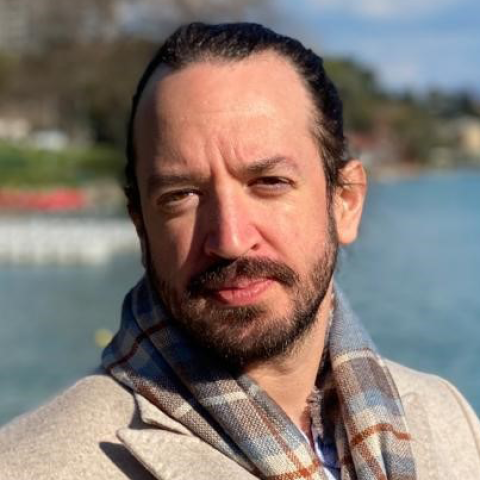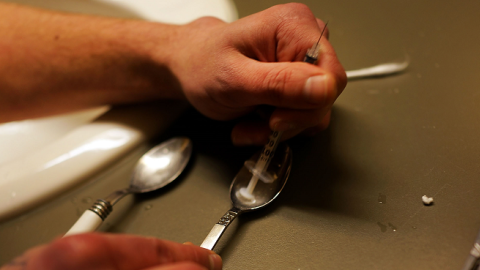Libertarians and social conservatives both resist an intrusive central government, but they differ over exactly what constitutes “intrusive” policy, especially when it comes to private behavior.
Nowhere is this divide more obvious than in the war on drugs. Social conservatives are troubled by drug abuse, especially among the young, and believe that government regulation of certain substances is necessary to curb behavior seen not only as self-destructive but also incompatible with a strong and free community. Libertarians, on the other hand, argue that the heavy-handedness of the nanny state, and the law-enforcement abuses likely to accompany it, present a greater threat to freedom than the prohibited behavior itself. As Milton Friedman put it, “the present system of drug prohibition … does so much more harm than good.”
The libertarian commitment to freedom should absolutely be acknowledged and, in a time of growing state control, defended. But, when it comes to drugs, libertarians have yet to grasp just how much drug abuse undermines individual freedom and erodes the very core of the libertarian ideal.
Many libertarians argue that the state should have no power over adult citizens and their decision to ingest addictive substances—so long as they do no harm to anyone but themselves. Hence, there should be no laws against using drugs, and over time this self-destructive behavior will limit itself.
But this harmless world is not the real world of drug use. There is ample experience that a drug user harms not only himself, but also many others. The association between drug use and social and economic failure, domestic violence, pernicious parenting and criminal acts while under the influence is grounds for prohibition even if we accept no responsibility for what the drug user does to himself. The drug user’s freedom to consume costs his community not only their safety, but also their liberty.
And I’m not just talking about heroin. Over the past decade, as marijuana use has grown, the number of car accident victims testing positive for the drug has tripled, according to a recent study.
Just as troubling as the potential harm done to others are the questions: What is to replace prohibition? And who holds the reins? Here things get sketchy. Everybody wants the cartels out; but who’s in? Whatever entity controls the supply controls the population of addicts.
Management of production and distribution, some envision, could be commercial. What could go wrong? Think Afghan warlord with a lobbying arm and a marketing department. Is drug use a disability? Who pays for the escalating doses? Big Pharma on, well, drugs, with direct-to-consumer advertising?
Others see a regulated, licensed dispensary model, perhaps with medical supervision. But misuse of opiate pharmaceuticals already represents the second-largest illicit drug threat in America. Would there be political corruption in the quest for those dispensary licenses? Perhaps, as with marijuana in Colorado, the state itself will run the show. What are the political implications of a state-regulated market for drugs? I have witnessed one such scheme, in Amsterdam, with the state-controlled distribution of heroin. The physician in charge presided over a clean, well-lit facility, clinical and efficient, where every morning that day’s clients entered her facility for their supervised heroin injections. The Dutch called their scheme “daycare.”
Come evening, the clients were discharged back into the streets. What if these drug users decided to continue their career of crime and seek illicit heroin to supplement their state-supported allotment? “Oh, that doesn’t happen,” the doctor assured me with a chilling smile. “If so, we simply withhold their heroin.”
This state has a nanny, indeed, and I fear that her clients are no longer free. They are wards of the state, and they are kept on a tight leash.
Controlled addiction happens elsewhere in the world, too. There is evidence that, in some places, suicide bombers, youth warriors, child sex slaves and even manual laborers are given drugs to keep them captive. Criminal drug dealers have long used such leverage to “own” their clientele.
For the addicted, the price exacted to maintain their dose may be bottomless, and can entail betrayals of self and others. The “clients” of Amsterdam are no longer active citizens, nor are they even willing actors, for they have contracted a disease that threatens their self-governance and gives whoever controls their drug of choice undue power over them. Do we want to hand the government that leash?
To be sure, some libertarians would stop at legalizing marijuana. But it’s hard to see how that will last. Marijuana is addictive (responsible for three-fifths of illicit drug abuse according to a 2012 National Survey on Drug Use and Health), and is a gateway to other drugs. Already, in parts of Europe and even Canada, cocaine, meth and opiates are legally used, with heroin distribution state-sponsored. This is not a conjectural debate.
And the political risks are already evident. All these marijuana users that are reliable supporters of pro-legalization candidates in their state campaigns—that donate their money and pledge their votes—how would we feel if they were all heroin users, compelled by their disease to support a particular political candidate? The fact that the United States is currently experiencing a surge in heroin makes this a question worth asking.
Even President Obama, whose administration has facilitated marijuana legalization, himself asked the logical follow-up question: “[What if] we’ve got a finely calibrated dose of meth, it isn’t going to kill you or rot your teeth, are we OK with that?”
Are we?
How does a libertarian abide the threat that today’s congressman might become tomorrow’s party functionary in charge of dispensing or withholding the desperately needed dose? If an essential predicate of libertarian society is the willing, rational actor, capable of weighing and understanding consequences, what’s left when this condition is absent?
Such a state is not the attainment of liberty, but rather its end.















